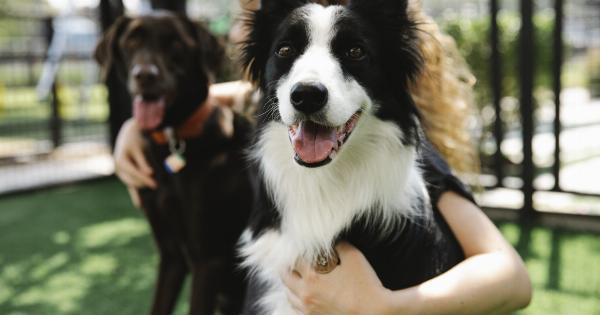Adding a furry friend to your family can bring immense joy and happiness. Whether you are considering adopting a dog or already have one, it’s important to select the perfect match for your lifestyle and preferences.
The right canine companion can provide you with endless love, companionship, and entertainment. However, choosing the ideal dog for your family requires consideration of various factors. In this article, we will discuss eight signs that indicate your canine could benefit from a specific type of dog.
1. Size Matters
One of the most crucial factors to consider when selecting a dog is their size. Small dogs are easier to manage and require less exercise compared to larger breeds.
If you live in an apartment with limited space, a smaller breed such as a Chihuahua or French Bulldog may be the perfect fit. On the other hand, if you have a large yard or enjoy an active lifestyle, a larger dog like a Labrador Retriever or German Shepherd could be a better choice.
2. Energy Levels
Every dog has its own energy level, which can significantly impact compatibility with your lifestyle.
If you lead a sedentary lifestyle or have limited physical abilities, it is best to opt for a dog with lower energy levels, such as a Basset Hound or English Bulldog. On the contrary, if you enjoy outdoor activities and exercise, an energetic breed like a Border Collie or Golden Retriever will be a great match.
3. Allergies
If you or any family members have allergies, it’s crucial to choose a hypoallergenic dog breed. These breeds produce less dander and are less likely to cause allergic reactions.
Some popular hypoallergenic breeds include Poodles, Yorkshire Terriers, and Portuguese Water Dogs. Keep in mind that no dog is entirely hypoallergenic, but certain breeds are generally more suitable for people with allergies.
4. Family Dynamics
Consider the dynamics of your family when choosing a dog. If you have young children, it is essential to select a breed known for its patience and tolerance towards kids, such as Labrador Retrievers or Beagles.
On the other hand, if you have older or more reserved family members, a calm and gentle breed like a Cavalier King Charles Spaniel or Shih Tzu might be a better fit.
5. Grooming Requirements
Grooming needs vary among different dog breeds. Some dogs require regular brushing, haircuts, and grooming appointments, while others have minimal grooming needs.
If you have limited time for brushing and grooming, consider low-maintenance breeds like Boxers or Dalmatians. However, if you enjoy grooming and bonding with your pet, breeds like Pomeranians or Afghan Hounds are great choices.
6. Trainability
The trainability of a dog can significantly impact your experience as a pet owner. Highly trainable breeds like Border Collies and German Shepherds thrive with structured training and mental stimulation.
If you have the time and dedication to invest in training, these breeds can be incredibly rewarding. However, if you prefer a more independent and less demanding companion, breeds like Basenjis or Siberian Huskies may be a better fit.
7. Health Considerations
It’s important to be aware of potential health issues associated with specific breeds. Certain dog breeds are prone to common health problems such as hip dysplasia, heart conditions, or skin allergies.
Research the breed you are interested in and consult with a veterinarian to understand potential health risks. This will allow you to make an informed decision and ensure the well-being of your furry friend.
8. Temperament
Lastly, consider the temperament and personality traits of the breed you are considering. Some dogs are naturally more outgoing and sociable, while others are more reserved or aloof.
If you are an active individual who loves socializing, a friendly and outgoing breed like a Labrador Retriever or a Golden Retriever will be an excellent match. However, if you prefer a more independent companion, a breed like a Shiba Inu or a Chow Chow may be a better fit.
Remember, selecting the perfect canine companion requires careful consideration of various factors. It’s important to choose a dog that aligns with your lifestyle, preferences, and family dynamics.
By considering these eight signs, you will be one step closer to finding the ideal match and building a long-lasting bond with your furry friend.






























